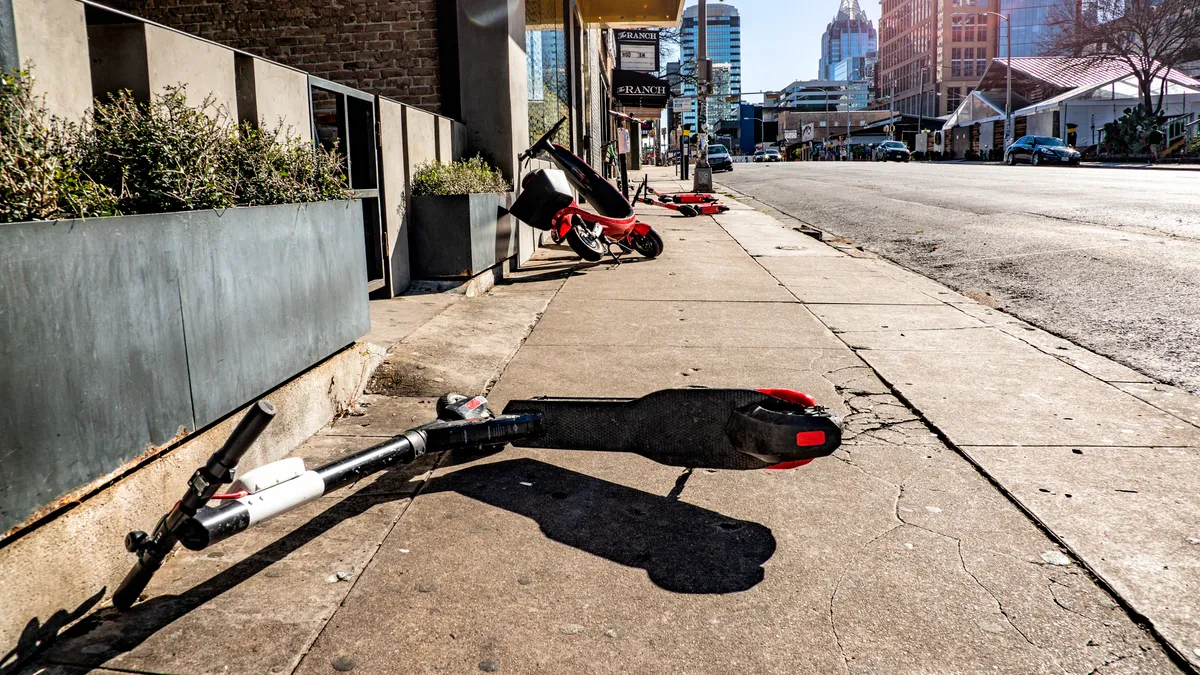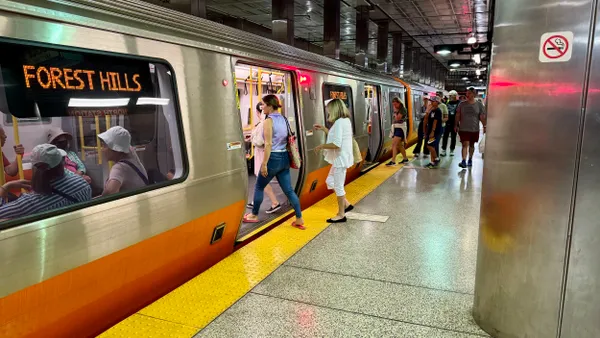Dive Brief:
- A new startup called Tortoise, co-founded by Uber veteran Dmitry Shevelenko, aims to outfit scooters and bikes with technology that will allow them to move autonomously or through remote control.
- Tortoise will partner with existing operators to install equipment for autonomous technology for either a monthly or per-mile fee. The vehicles can then be moved on-demand to sidewalks, bike lanes or alleys. Tortoise claims the innovation will "solve some of the biggest challenges" associated with micromobility, including clutter and on-demand availability.
- The technology will first be tested at the new Curiosity Lab in Peachtree Corners, GA, in November. Tortoise has reached partnerships with operators and manufacturers Wind, Gotcha, CityBee, Go X, and Shared.
Dive Insight:
Although micromobility networks like shared scooters and e-bikes have presented opportunities to get people out of cars, Shevelenko told Smart Cities Dive that the potential has not been realized. At least half of car trips are still under two miles and have the potential to be replaced by micromobility modes.
"A big reason that shift isn't happening is because the reliability of one being available is very low," said Shevelenko, who led mobility partnership initiatives at Uber before leaving the company in 2018. "People will take them if they happen to be there, so that ends up cannibalizing walking trips, not car trips."
Tortoise seeks to solve that problem by making micromobility a door-to-door service. Instead of walking to find a scooter or bike, users could summon one. The vehicle would then travel at less than 5 mph along a safe route (the company says it will work with host cities to find less populated streets or alleys to send scooters through). The technology will also work to clear clutter by directing parked scooters out of sidewalks or streets, and potentially to charging docks.
In the short term, all repositioning will be handled by remote tele-operators, who will have to go through a 30-hour training program to be certified. Initially, only Tortoise engineers will be certified, which Shevelenko said would make them "directly accountable." Tortoise also handles all insurance and reliability during repositioning.
The same technology could eventually be brought to delivery bots, security robots or other devices that will navigate sidewalks. The company's goal is to be "the Android of the light electric vehicle" by bringing a technology stack to different modes, he said.
As scooters and e-bikes have taken off in cities, Tortoise joins a number of companies that have spun off of the trend and seek to better integrate the devices into cities. Segway-Ninebot has announced its own three-wheeled autonomous scooter that it says will be brought to Uber and Lyft fleets. Charge has developed docking and charging stations to be deployed in New York City, and ScootScoop has organized cleanups of abandoned vehicles.












